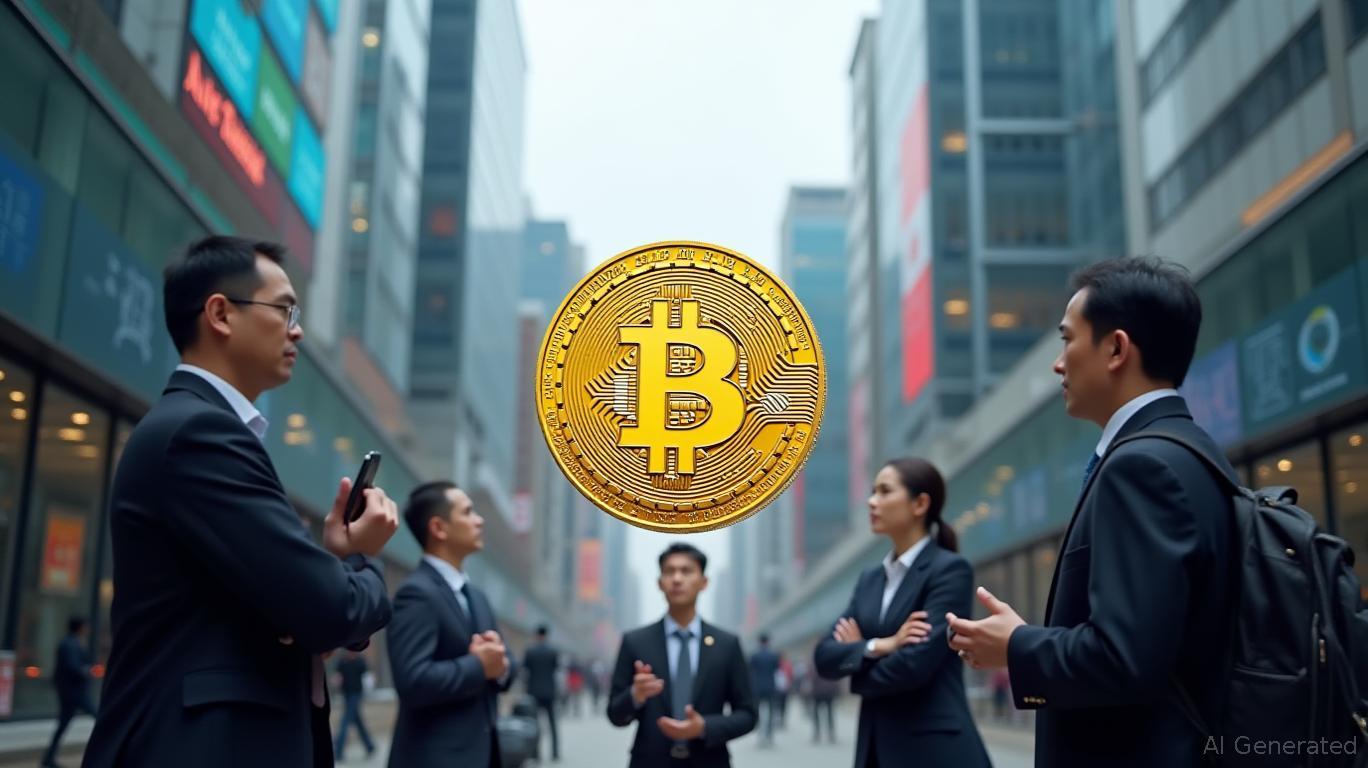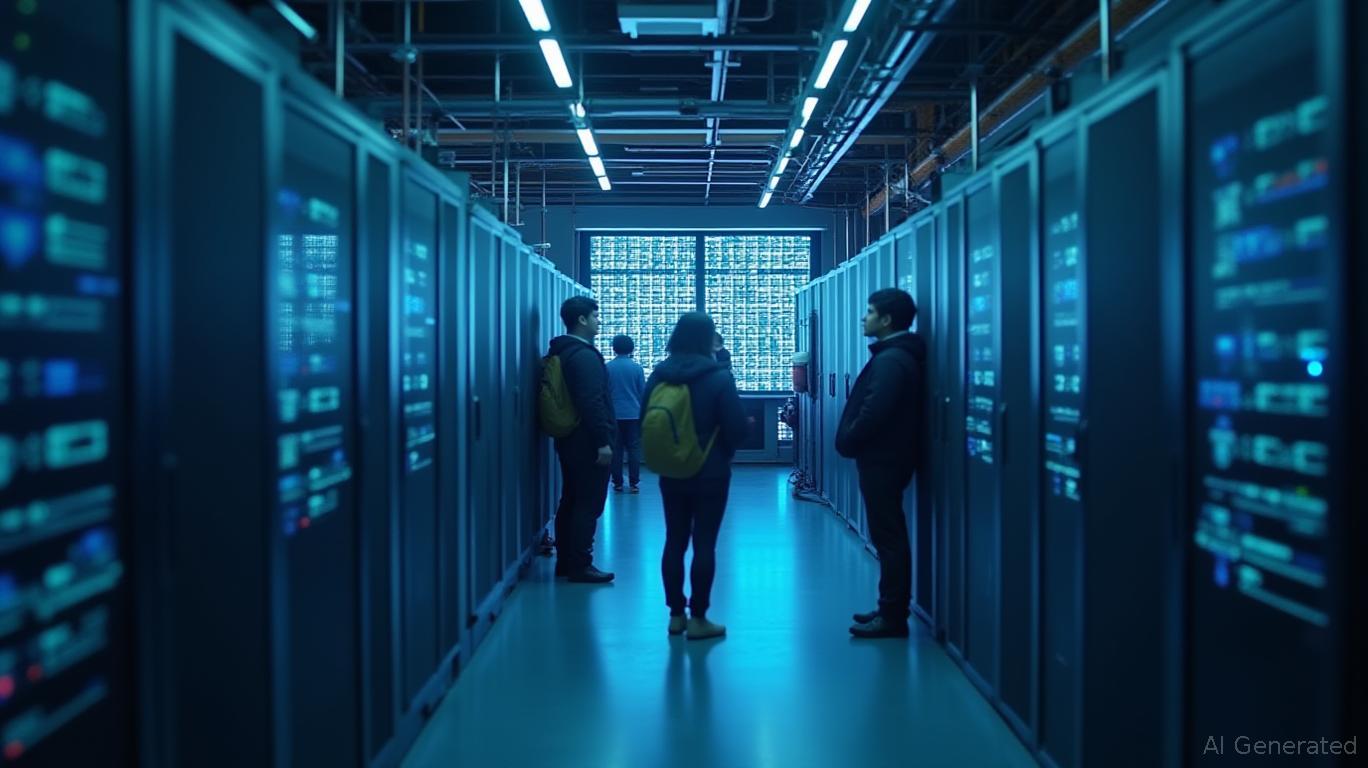Deutsche Telekom's Blockchain Initiative: Safeguarding the Decentralized Future of AI
- Deutsche Telekom joins Theta Network as an enterprise validator, the first telecom company to operate a node on the blockchain platform. - Theta's EdgeCloud leverages distributed GPU resources to enable low-latency AI, media, and real-time data processing applications. - Telekom's blockchain engagement includes Ethereum/Polkadot validation and Bitcoin mining, reflecting its Web3 infrastructure strategy. - The partnership highlights blockchain's shift toward enterprise infrastructure, offering cost-effect
Deutsche Telekom AG, recognized as one of the leading global telecommunications companies, has become an enterprise validator on
Theta Network’s hybrid cloud-edge solution, Theta EdgeCloud, utilizes distributed GPU power to lower latency and expenses for applications like generative AI, 3D rendering, and live data processing. Deutsche Telekom’s involvement highlights the increasing intersection between telecom infrastructure and blockchain, especially in AI-powered edge computing. Dirk Roeder, who leads Telekom MMS Web3 Infrastructure and Solutions, pointed out that Theta’s decentralized system fits the company’s emphasis on “reliable, secure infrastructure,” and mentioned that the collaboration “opens up new opportunities in AI and media innovation,” as reported by Investing.com.

Deutsche Telekom’s engagement with blockchain is not unprecedented. Through its subsidiary Deutsche Telekom MMS, the company has previously run validator nodes for
Theta Labs, the team behind Theta Network, stressed the strategic value of Deutsche Telekom’s participation. CEO Mitch Liu remarked that the telecom’s move to operate a validator node “demonstrates Theta’s rising significance as a leader in decentralized cloud services for AI, media, and entertainment,” according to Investing.com. The platform’s hybrid approach, which merges community-operated edge nodes with cloud partners, is intended to make high-performance computing more accessible, as reported by
This alliance also marks a broader trend in how corporations are embracing decentralized technologies. As the costs of cloud computing climb alongside the growing need for AI, platforms like Theta provide scalable and economical alternatives. Deutsche Telekom’s validator address—0x5e4a3f43c34f66768961f73eccef984b71bb692a—is already live on the Theta blockchain, reflecting the company’s transparent approach, as noted by Investing.com. Experts believe that such partnerships could accelerate enterprise adoption, especially in sectors that demand high-performance, low-latency computing, according to Coinotag.
Disclaimer: The content of this article solely reflects the author's opinion and does not represent the platform in any capacity. This article is not intended to serve as a reference for making investment decisions.
You may also like
Crypto Plunges Amid Conflicting Fed Messages and Concerns Over Data Breaches
- Crypto prices fell amid conflicting Fed signals and U.S.-China trade deal uncertainty, despite eased trade restrictions and a 25-basis-point rate cut. - A UK data breach case highlighted crypto's vulnerability to insider fraud, with regulators expanding enforcement against data misuse in financial crimes. - Market volatility intensified as Fed's halted quantitative tightening created liquidity uncertainty, echoing 2019's 35% Bitcoin drop after QT ended. - Analysts remain cautiously optimistic about long-

Stellar News Today: Major Institutions Place Significant Bets on Stellar’s Real-World Blockchain Expansion
- Stellar's XLM token stabilized near $0.30 as Q3 2025 saw 700% surge in smart contract invocations and $5.4B RWA volume. - Partnerships with Chainlink and PayPal USD expanded Stellar's cross-chain interoperability and stablecoin adoption in daily transactions. - Institutional investments and $2T RWA market projections position Stellar as a leader in compliant blockchain solutions for global finance. - Technical analysis shows XLM trading in a tight range with potential volatility if buyers control $0.35 r

Hong Kong's Stablecoin Regulations Balance Innovation and Investor Protection
- Hong Kong mandates stablecoin issuance by SFC-licensed providers to strengthen investor protection and market stability. - Regulators reject DAT structure conversions for listed firms, warning against inflated valuations exceeding crypto holdings' value. - The framework aligns with global trends but contrasts with U.S. permissiveness, balancing innovation against mainland China's stricter crypto controls. - Stablecoin transaction volumes hit $4.65T in late 2025, yet regulators stress education to mitigat

Bitcoin Updates Today: How Bitcoin Mining Supports Grid Reliability Amid Japan’s Green Energy Transition
- Canaan Inc. partners with Japanese utility to deploy 4.5MW hydro-cooled Bitcoin miners for grid balancing, marking Japan's first government-backed "digital load balancer" initiative. - Avalon A1566HA-488T servers use smart control chips to dynamically adjust mining operations, enhancing grid stability while consuming 8,064W per unit at 16.8J/TH efficiency. - Project aligns with Japan's crypto regulatory reforms and global "clean crypto" trends, leveraging surplus renewable energy for mining without strai
